Posted on August 25, 2010
Write, Stupid! …with intelligence
 As you may have noticed, Coquetting Tarradiddles is no longer running new content on Tuesdays and Thursdays. This is because I’ve decided to slightly alter the publication schedule to ‘whenever I damn well feel like it’. This is a minor change and absolutely no one should send me hate mail about it. Or, for that matter, thank-you notes. And, with that bit of business out of the way, let’s go ahead and jump right into the big bowl of verbal salad I’ve prepared for you today. This one is for all the writers out there.
As you may have noticed, Coquetting Tarradiddles is no longer running new content on Tuesdays and Thursdays. This is because I’ve decided to slightly alter the publication schedule to ‘whenever I damn well feel like it’. This is a minor change and absolutely no one should send me hate mail about it. Or, for that matter, thank-you notes. And, with that bit of business out of the way, let’s go ahead and jump right into the big bowl of verbal salad I’ve prepared for you today. This one is for all the writers out there.
You are not an author. Even if you are a writer, you’re probably not an author. Sure, you may pound your keyboard into the lunatic hours of the morning when only field mice and dead things are awake, but that doesn’t make you an author. A professional keyfucker maybe, but an author? No.
Authors are people like Ernest Hemingway and Charles Dickens, Mark Twain and Virginia Woolf. Authors are mythical titans of the written word and are, by prerequisite, absolutely deceased. There’s a reason for this, but I’ll get back to it later. For now, let’s just assume that anyone alive today who makes a living by putting pen to paper, typebar to ribbon or ASCII character to screen is just a plain old day laborer working to make ends meet, like everybody else. This includes everyone from bloggers to bestsellers and sitcom scribes to Hollywood screenwriters. Granted, some folks make more money than others, but wherever we are in our careers, we’re all just one idea away from greatness…and one miserable failure away from ruin.
The problem with writing professionally is that it’s essentially a manufacturing job without the benefit of an assembly line. To be a writer is to be responsible for producing an endless stream of unique prototypes, each slightly more impressive than the last – and to keep them coming. A dip in either quality or quantity is equally damning, and are best avoided altogether. If your latest work is weaker than the one before it, you are slipping. If the time between your previous success and your next is increasing, you’re blocked and losing your relevance. If you’re a novelist, then your next book should come faster and read better than your earlier work, or you’re regressing. If you’re working on a television series and you can’t maintain the jokes after six seasons, your work has gone stale and it’s time to look for another job. Right?
Produce, produce, produce. That’s the mantra. Once you get your hooks into a professional writing gig, dig them in deep and keep the work flowing. But keep making it better. And keep writing it faster. And don’t ask for more money. Blah.
 The biggest hurdle for new writers to overcome is the notion that they’ll ever be rich and famous. If you’ve been working on a novel for the past ten years and expect wealth and adoration to be waiting just around the corner, get used to disappointment. Even if a publisher picks up your manuscript and runs with it, you’ll still need your day job. Even with several books under your belt and on store shelves, you’ll need that income. Unless poverty is your thing, that is. Which brings me to “artists”.
The biggest hurdle for new writers to overcome is the notion that they’ll ever be rich and famous. If you’ve been working on a novel for the past ten years and expect wealth and adoration to be waiting just around the corner, get used to disappointment. Even if a publisher picks up your manuscript and runs with it, you’ll still need your day job. Even with several books under your belt and on store shelves, you’ll need that income. Unless poverty is your thing, that is. Which brings me to “artists”.
Writers scribbling for the sake of creating Art are much more common than writers working for a paycheck. This is probably because Art is pretty easy to create and even easier to not sell. Just make it obtuse, fill it with references nine out of ten people won’t get, toss in a heaping tablespoon of multisyllabic words pilfered from obscure sources and dead languages, and you’ve got a riveting rumination on the drama of the human condition…that no one will read.
Writers wanting to create Art are the ones who usually call themselves Authors. They are people who see themselves as modern day Tolstoys, who take their repeated rejections or low sales numbers to be indicative not of their talentlessness, but of the persecution inherit in the system. People are stupid, after all – and Authors don’t write for stupid people. Smart people, they reason, probably love their work – but since the stupid outnumber them by about a zillion to one, that’s why they can’t sell a book. It’s not their fault. They’re just too damned good!
On the other side of the coin, there are writers who thrive in the shallow waters of the mass market. They write meaningless tripe for lonely housewives and boring fanboys, and they sell it by the truckload. They recycle characters and themes, cutting and pasting their way through books filled with a third grade vocabulary and plastered by cliche. The mass market needs easily digestible pap: nothing too challenging, but just hard enough to make them feel smart. You’ve heard the arguments before, so let’s just accept them as writ and move on to my point.
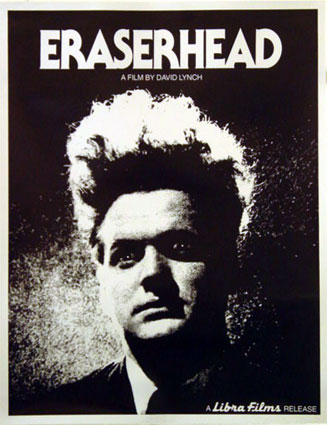 Readers aren’t interested in stupid writing, regardless of what you may think about the state of intelligence in the modern world. Neither are moviegoers or TV viewers. Rather, our audiences are only as stupid as we allow them to be. If we fill our product with nothing but challenging material that we suspect (and secretly hope) will go sailing over their heads, they’re not going to be interested in it because it’s simply not interesting. No one wants to read a book to learn how smart its writers is, and outside of the arthouse crowd, no one wants to watch a movie or television show that doesn’t make any sense.
Readers aren’t interested in stupid writing, regardless of what you may think about the state of intelligence in the modern world. Neither are moviegoers or TV viewers. Rather, our audiences are only as stupid as we allow them to be. If we fill our product with nothing but challenging material that we suspect (and secretly hope) will go sailing over their heads, they’re not going to be interested in it because it’s simply not interesting. No one wants to read a book to learn how smart its writers is, and outside of the arthouse crowd, no one wants to watch a movie or television show that doesn’t make any sense.
The same goes for the other end of the scale. By and large, the mass market isn’t interested in deeply stupid material. Sure, there’s a demographic that loves slapstick and low-brow humor, who won’t go anywhere near a movie that might make them think, but that’s fine. That’s what Michael Bay is for, or Dan Brown or Tyler Perry. However, it’s a fallacy to assume that simply because some really dumb movies are really successful, that the market only wants to see Stupid. It doesn’t. Don’t get me wrong, though. People like Stupid, just like they enjoy ice cream and fast food – but most people don’t want to live on it.
The challenge a good (working) writer faces is to create neither Art nor Stupid. Rather, it is to breed the two and write Stupid…with Intelligence. If you’re really clever about things, you can make something mass-marketable and still sneak in just enough smart stuff to trick people into thinking. It’s kind of like putting some sugar in the cough syrup or hiding your dog’s vitamin pill in a wad of squishy Alpo: learn to speak on the level of everyone without talking down to anyone, and you can get away with trying to make the world a little less dumb – and still get a check at the end of the day.
 By way of example, look at Joss Whedon and company. Along with his excellent cadre of writers like Jane Espenson, Marti Noxon and David Fury (among others), Joss created an entirely new myth in the Female Superhero genre when Buffy The Vampire Slayer hit the airwaves. He could have gone the easy route of just making a hot girl with superpowers kick undead butt every week, but he didn’t. I mean yeah, he did – and Sarah Michelle Gellar certainly did her part as butt-kicking superhero – but he went deeper with it. On the surface, the show was pretty simple: it was filled with silly jokes and catchy one-liners mixed in among the teen angst and asskickery – and it worked on that level alone. But then, there’s the subtext…
By way of example, look at Joss Whedon and company. Along with his excellent cadre of writers like Jane Espenson, Marti Noxon and David Fury (among others), Joss created an entirely new myth in the Female Superhero genre when Buffy The Vampire Slayer hit the airwaves. He could have gone the easy route of just making a hot girl with superpowers kick undead butt every week, but he didn’t. I mean yeah, he did – and Sarah Michelle Gellar certainly did her part as butt-kicking superhero – but he went deeper with it. On the surface, the show was pretty simple: it was filled with silly jokes and catchy one-liners mixed in among the teen angst and asskickery – and it worked on that level alone. But then, there’s the subtext…
Oceans have been written on the brilliant stitching of subtext and pop culture that defines the Whedonverse, of the great strides his series have made towards ideals in the areas of feminism, acceptance, addiction, redemption and the concept of family (to list just a few), so I’ll skip all that here. (If you want to read more on the subject, pick up some of these books.) My point is that you can fill a story with sexy bodies, huge explosions, vampires, demons, programmable people and robot overlords and it’ll make for a nice bit of fanfiction pulp that a few people know, but that no one really cares about. However, if you take those sexy bodies and put intelligent, multi-faceted characters in them, or tie the huge explosions and robot overlords to genuine human drama where the fact that everyone’s scooting around the universe in spaceships doesn’t really matter, then you’re onto something. You can take space cowboys and weave in ancient philosophical questions that have plagued mankind since Plato was buggering little boys, and make people think while they’re being entertained. In other words, you give them art. Little ‘a’ – but it’s enough.
 I’d argue that one piece of well-written genre material (be it television, movies, novels or comics) is more capable of examining the human condition than any number of high-brow works of Art. Not only is it more digestible and easily accessible, but the best bits of genre enter the zeitgeist of public consciousness, where they infest themselves in the collective unconscious and become the stuff of pop culture. And, they get people talking: “OMG! Gandalf Starbuck ruined Battlestar!” or “Woah. Kara Thrace blew my damn mind. What was she?!” The arguments show it’s working.
I’d argue that one piece of well-written genre material (be it television, movies, novels or comics) is more capable of examining the human condition than any number of high-brow works of Art. Not only is it more digestible and easily accessible, but the best bits of genre enter the zeitgeist of public consciousness, where they infest themselves in the collective unconscious and become the stuff of pop culture. And, they get people talking: “OMG! Gandalf Starbuck ruined Battlestar!” or “Woah. Kara Thrace blew my damn mind. What was she?!” The arguments show it’s working.
And that’s my final point for today: if you’re a writer, don’t try to be an Author. Authors are dead legends, held to lofty ideals and praised for works that wouldn’t be impressive now, were Hemingway writing his staccato narratives today. Their work inspires us still because it has endured the test of time, not because it was amazing when it was written. Hell, in a hundred years, episodes of Webster may be revered as high art for all we know. We shouldn’t concern ourselves with how history will praise or revile our work, because none of that matters today – and it certainly doesn’t pay the rent.
Instead, just be a writer. Don’t try to write to the lowest common denominator, and don’t work to be so clever that no one could ever hope to understand you. Just write. Write something you’d like to read or watch or listen to. Throw in some universal questions and make your story about people – even if they’re purple, live on the planet Zentoo and have sex with their eyes. Work the subtext. You can get away with murder in subtext. Stupid people won’t see it, smart people will love it, and everyone else in-between will be affected by it. Pay attention to pop culture, and create a phenomenon. Then keep making it better.
 And don’t think you can’t do it. Don’t let anyone tell you it’s not possible to make a dent in the Great Wall of Stupid that surrounds the world. When Jed Whedon and Maurissa Tancharoen got it in their heads to create a cheaply produced web series with Zack and Joss Whedon, they ended up creating Doctor Horrible’s Sing-Along Blog – a three-part webisode Internet thing that took all of its silliness and singing for a lark, then slapped audiences in the face with abject tragedy, ending the entire production on a melancholy note of despair and regret. It was brilliant, it was cheap and it was smart. And stupid.
And don’t think you can’t do it. Don’t let anyone tell you it’s not possible to make a dent in the Great Wall of Stupid that surrounds the world. When Jed Whedon and Maurissa Tancharoen got it in their heads to create a cheaply produced web series with Zack and Joss Whedon, they ended up creating Doctor Horrible’s Sing-Along Blog – a three-part webisode Internet thing that took all of its silliness and singing for a lark, then slapped audiences in the face with abject tragedy, ending the entire production on a melancholy note of despair and regret. It was brilliant, it was cheap and it was smart. And stupid.
So be like Dr. Horrible…except maybe without the Wonderflonium, and with much less Evil.

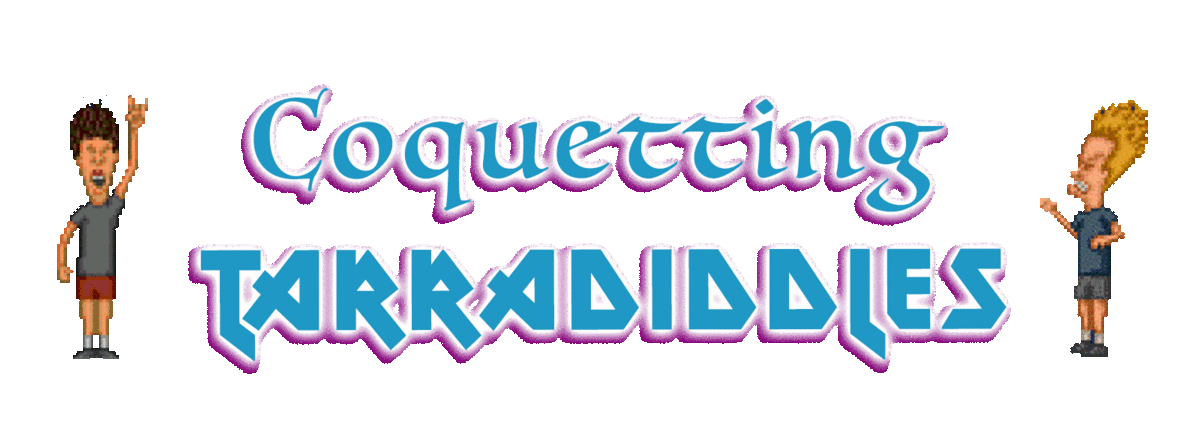
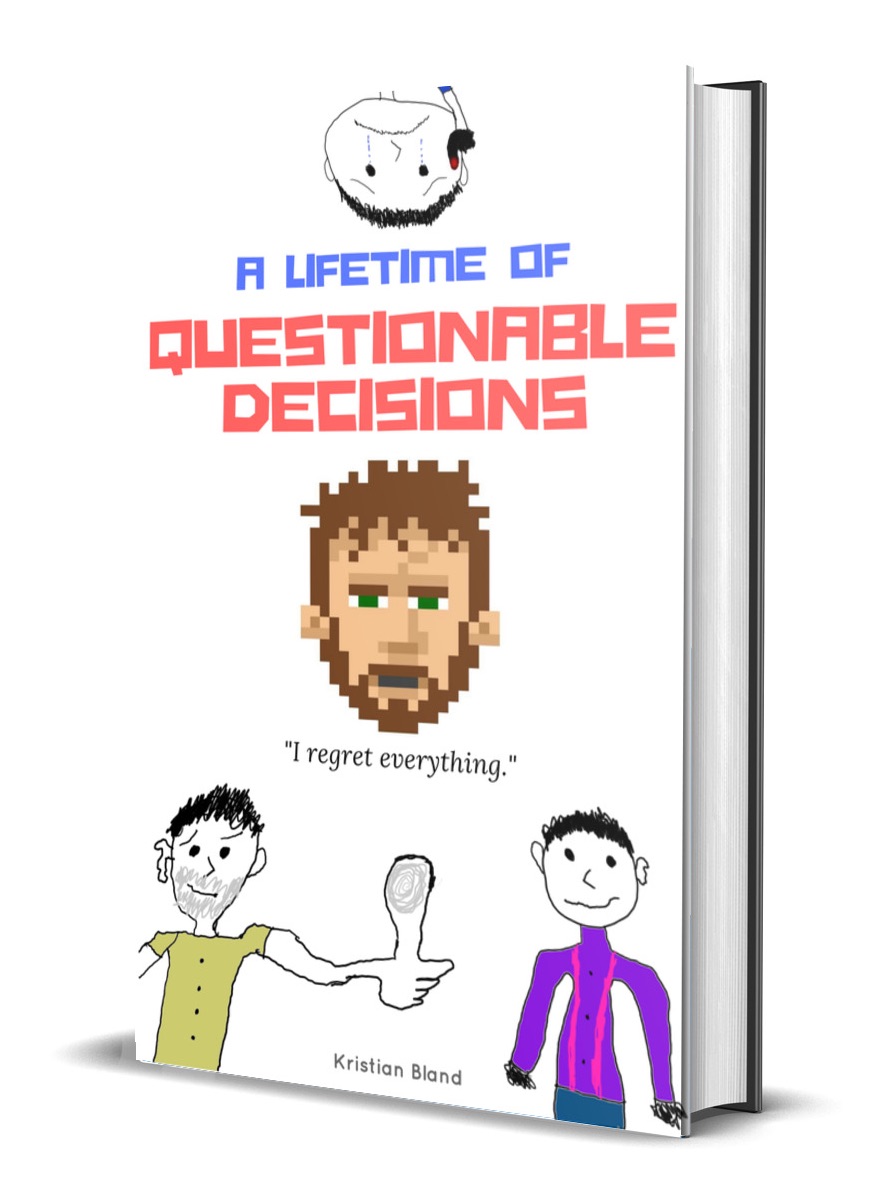




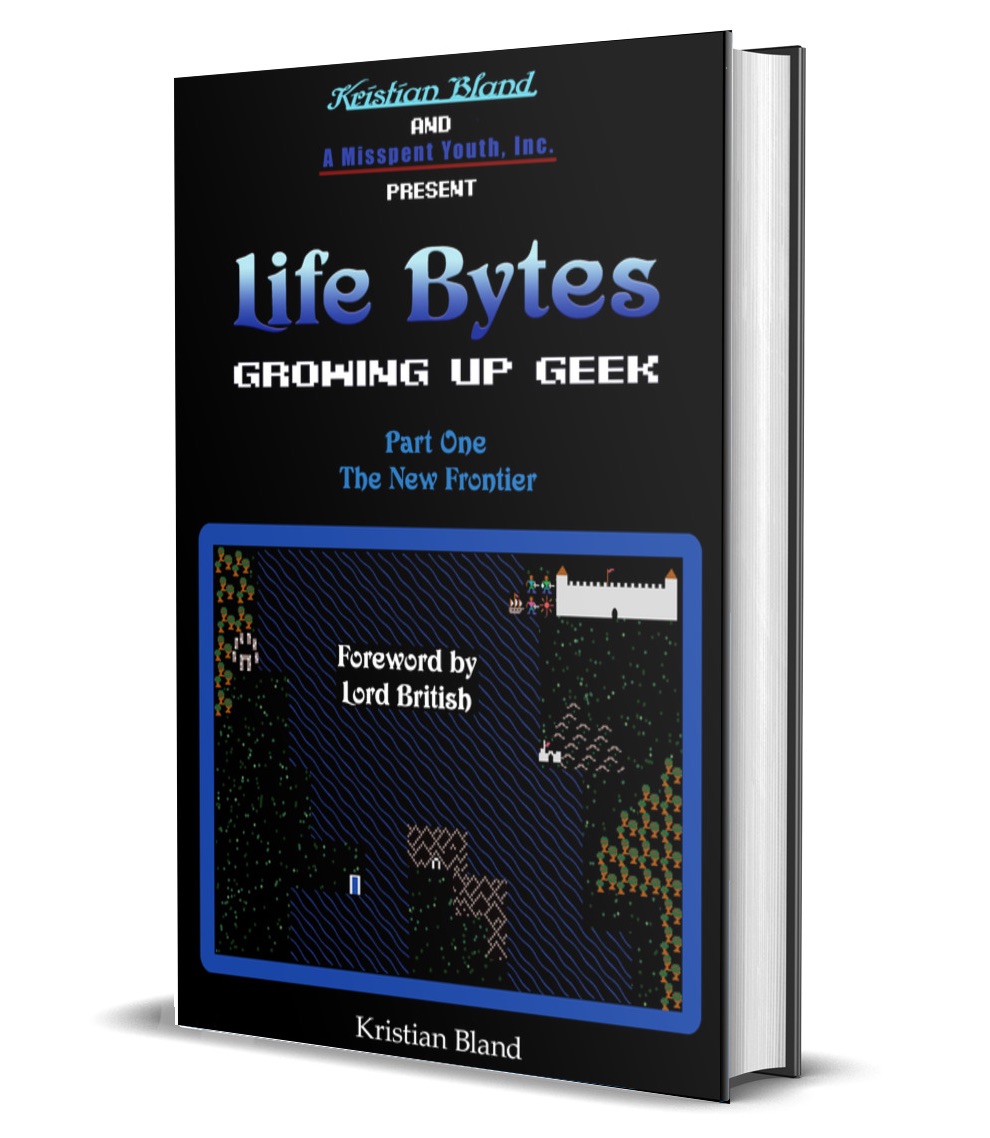
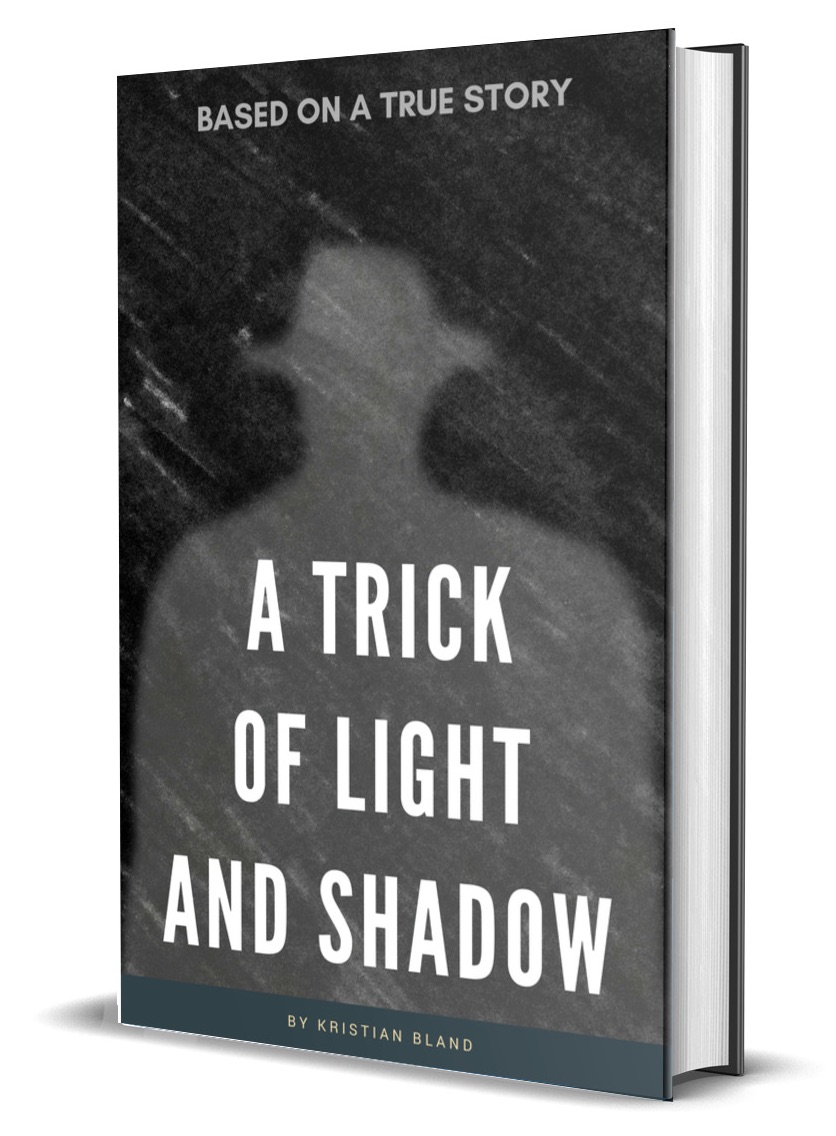
“Update, Stupid!”
haha 😛
I know, I know. I’ve been neglecting coqdiddles, but I’ve been busy! Excuses, excuses…
I’ll put something up in the next few days, though. In the meantime, you can read more of me at http://blog.beaumontenterprise.com/hallpass
Ah, Wonderflonium. *Sigh*